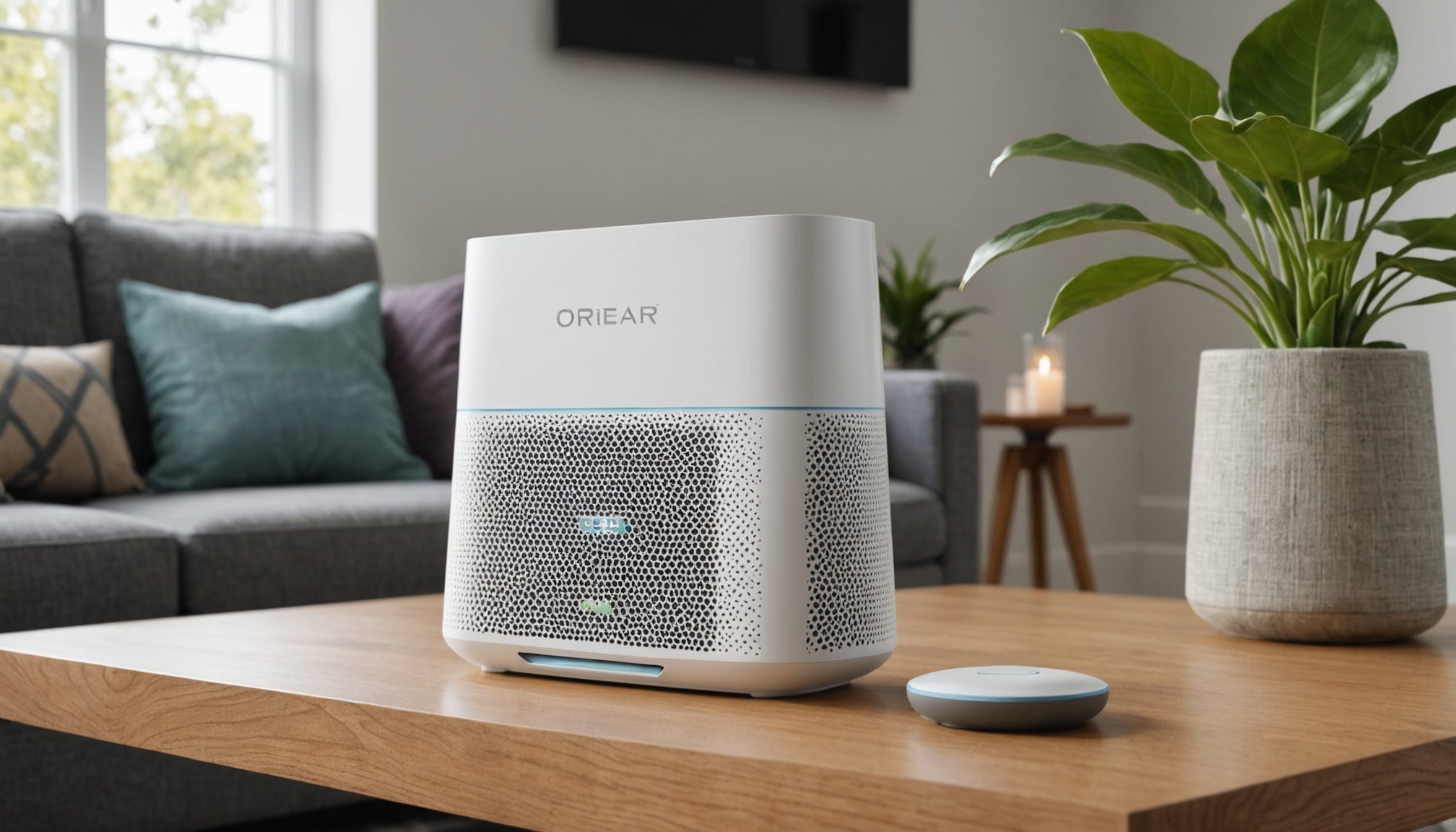Understanding Home Network Security
In the digital age, home network security has evolved from a beneficial feature to a necessity. With increasing connectivity, home networks are vulnerable to numerous network threats that can impact everything from personal data to connected devices’ functionality. Safeguarding your network involves recognising potential security risks and mitigating them effectively.
Common threats to home networks include malware attacks, unauthorised access, and data interception. These threats can lead to privacy breaches, device hijacking, or even financial loss. An infected device within your network can potentially compromise every connected gadget, making the threat pervasive.
Additional reading : Supercharge your msi meg z490 unify motherboard: optimal bios settings for ultimate performance
Home wireless systems, while offering convenience, also present several vulnerabilities. These vulnerabilities often include default settings that make the network susceptible to attacks, weak passwords, or outdated firmware lacking the latest security patches. Understanding these vulnerabilities is the first step toward bolstering your home’s digital defence.
By understanding the security risks and how they manifest in typical wireless systems, you can take effective steps to secure your network. This often involves regularly updating passwords, enabling strong encryption protocols, and regularly updating device firmware. Considering the integration of advanced measures, like a virtual private network (VPN), can further protect against external threats. Implementing these strategies creates a robust security framework that shields against potential data breaches.
This might interest you : Unlock the Full Potential of Your Lenovo ThinkPad X1 Extreme: A Comprehensive Guide to VMware Workstation Configuration for Virtual Mastery
Overview of Netgear Orbi RBK50 Features
The Netgear Orbi RBK50 is a robust choice for enhancing home network security and coverage. As a mesh system, it excels in delivering wide, reliable connectivity, eliminating dead spots commonly found in traditional routers. Utilising mesh technology, the Orbi extends Wi-Fi signals evenly throughout the home, ensuring that every device enjoys a strong, consistent connection without interruption.
The Orbi RBK50 stands out with its impressive specifications and capabilities. It supports high-speed broadband, making it ideal for streaming and gaming applications. With dual-band Wi-Fi and dedicated backhaul channels, it ensures the seamless distribution of internet across multiple devices.
Security is a core feature of the Orbi system. It comes equipped with built-in security capabilities, such as WPA2 encryption, firewall settings, and automatic firmware updates, to protect against emerging threats. These security measures are crucial in maintaining a secure home network, safeguarding users from data interception and unauthorised access.
Overall, the Netgear Orbi RBK50 offers not only enhanced coverage through its mesh technology but also a secure network environment with its comprehensive security features. This makes it an excellent choice for homeowners looking to improve their home network security efficiently.
Step-by-Step Installation and Setup Guide
To get started with your Netgear Orbi installation, gather necessary equipment: a modem, the Orbi router and satellite, and Ethernet cables. Connect the Orbi router to your modem using the Ethernet cable; this step establishes the internet connection and is crucial for effective setup.
- Initial Setup: Plug in the Orbi router and satellite, ensuring they’re at a suitable distance for optimal coverage. Power them on; the LEDs will indicate the connection status.
- Orbi App Configuration: Download the Netgear Orbi app on your smartphone. Follow on-screen instructions to create a network. The app simplifies the process, ensuring devices connect easily and remain secure.
For mesh network configuration, the app assists in placing satellites for robust coverage, eliminating dead zones. The app guides through setting preferred network names and passwords, enhancing both usability and security.
Configuring Orbi settings involves using the app or web interface. Here, network names/passwords, guest networks, and parental controls are customizable. Explore advanced settings like QoS for prioritising bandwidth-heavy applications.
With this step-by-step guide, establishing your mesh system efficiently is achievable. Proper configuration ensures reliable, secure connectivity throughout your home, enriching the benefits of using the Orbi RBK50.
Optimizing Security Settings
To fortify your network security settings, it’s vital to first access your Orbi’s management interface via app or browser. Once logged in, navigate to the security section where various encryption methods like WPA3 are available. Enabling the strongest encryption your devices support ensures your data remains shielded from unauthorised access.
An additional layer of defence is configuring your firewall settings, which are integral in blocking potential intrusions. Firewalls inspect traffic and prevent malicious data from entering your network. Adjust these configurations based on your home’s specific needs to optimise balance between security and performance.
Adopting best practices is essential for a robust security framework. Regularly update your passwords and enable multi-factor authentication wherever possible. Doing so adds another layer of protection to your network.
Lastly, stay vigilant against emerging threats by scheduling frequent updates of your system firmware. Automatic updates ensure your Orbi is equipped with the latest security patches, further strengthening your network’s integrity.
By prioritising these settings, you ensure your Orbi system not only delivers enhanced connectivity but also safeguards your digital life against potential threats.
Troubleshooting Common Security Issues
In the realm of security troubleshooting, it’s crucial to identify common network issues effectively. Common problems often include weak Wi-Fi signals, unauthorised access to the network, or disrupted connections. These issues can stem from outdated firmware, incorrect settings, or interference from other devices.
Steps for diagnosing start with verifying all your devices are updated with the latest firmware. Manufacturers frequently release security patches, and skipping these updates can leave vulnerabilities exposed. Also, ensure that your Orbi system configuration aligns with recommended security settings.
To tackle connection and performance issues, check for interference from other electronic devices. Microwaves, baby monitors, or even Bluetooth devices can disrupt your Wi-Fi signal. Repositioning your router and satellites or changing the channel on which your Wi-Fi operates can mitigate such issues.
Sometimes, problems persist beyond user resolution. Recognizing when to seek help from Netgear support is pivotal. Their resources include FAQs, user forums, and direct support channels. Utilizing these resources not only solves immediate issues but provides guidance for future prevention, ensuring your network remains secure and efficient. For continued success, ensure regular reviews and updates of your security protocols.
Real-World Use Cases and Success Stories
Exploring real-world network security case studies and user experiences provides valuable insights into the effectiveness of the Orbi system in practical applications. These case studies reveal how families and businesses have successfully enhanced their security measures with Orbi, showcasing its adaptability and reliability.
For instance, a small business that frequently experienced network threats adopted the Orbi RBK50 to strengthen its security framework. The built-in security features, like WPA2 encryption and automatic firmware updates, effectively mitigated these security risks, leading to a significant reduction in data breaches.
Users commonly report that the ease of use of the Orbi system contributes to their overall satisfaction. Many testimonials highlight the straightforward installation process and intuitive interface as key factors that empower users to implement robust security without extensive technical knowledge.
Real-world implementations also provide lessons learned, such as the importance of regularly updating device firmware and passwords to maintain optimal protection. These stories not only demonstrate Orbi’s capability in fortifying home network security but also reflect its practical benefits in creating safer digital environments.
Overall, these user experiences help others make informed decisions by illustrating the tangible advantages of adopting Orbi’s comprehensive security features in diverse settings.
Frequently Asked Questions
Navigating the complexities of the Netgear Orbi RBK50 can lead to numerous common queries. Users often wonder, “How secure is the Orbi RBK50 compared to traditional routers?” The Orbi RBK50 enhances security with its integrated encryption methods like WPA2, offering a robust layer of protection against potential network threats. Unlike many traditional routers, it automatically updates its firmware, reducing the risk of outdated security protocols.
A frequent concern is, “Will setting up a mesh network complicate my home network security?” On the contrary, mesh systems, such as Orbi, simplify network management by centralising control via an app. This provides intuitive access to adjust security settings like firewalls and encryption protocols, thereby maintaining a secure and efficient network with ease.
Users often seek clarity about maximizing the Orbi’s performance without compromising security. The key is balancing security settings and network load through features like Quality of Service (QoS) which prioritises bandwidth-heavy applications, enhancing both performance and security.
Lastly, resources for further reading and support are vital. Access to user manuals, online forums, and Netgear support can provide continued assistance, ensuring users effectively manage their network security challenges.











